
Windhoek: The Heartbeat of Namibia
Windhoek, the capital city of Namibia, is a vibrant blend of African and European cultures, nestled in the central highlands of the country. Known for its clean streets and welcoming atmosphere, Windhoek offers visitors a unique blend of history, culture, and modernity. The city is a gateway to exploring Namibia's vast landscapes but also a destination in its own right. Start your journey at the Independence Memorial Museum, which provides a deep dive into Namibia’s struggle for independence. Nearby, the Christuskirche, a historic Lutheran church, stands as an architectural gem with its stunning stained-glass windows and commanding presence. Just a short walk away, you can explore the bustling Craft Market, where local artisans sell handmade crafts, perfect for souvenirs. Windhoek’s culinary scene is a delightful fusion of flavors. From traditional Namibian dishes to international cuisine, there’s something to satisfy every palate. Don't miss the chance to try local delicacies like biltong or kapana at one of the vibrant markets. The city also offers a range of accommodation options, from luxurious hotels to cozy guesthouses, ensuring a comfortable stay for all visitors. For those seeking adventure, Windhoek is surrounded by natural beauty. A short drive from the city, you will find Daan Viljoen Game Park, where you can enjoy wildlife viewing and scenic hikes. Additionally, the nearby Namib Desert offers endless opportunities for exploration, from sandboarding to hot air balloon rides. Windhoek truly serves as the perfect starting point for any Namibian adventure.
Local tips in Windhoek
- Visit the Craft Market early in the day for the best selections and to avoid crowds.
- Book a guided tour at the Independence Memorial Museum to gain deeper insights into Namibia's history.
- Try local dishes like biltong and kapana at the markets for an authentic taste of Namibian cuisine.
- Stay hydrated and wear sunscreen, as Windhoek can get quite hot, especially during the summer months.
- Renting a car is recommended for exploring the surrounding natural attractions at your own pace.
Windhoek: The Heartbeat of Namibia
Windhoek, the capital city of Namibia, is a vibrant blend of African and European cultures, nestled in the central highlands of the country. Known for its clean streets and welcoming atmosphere, Windhoek offers visitors a unique blend of history, culture, and modernity. The city is a gateway to exploring Namibia's vast landscapes but also a destination in its own right. Start your journey at the Independence Memorial Museum, which provides a deep dive into Namibia’s struggle for independence. Nearby, the Christuskirche, a historic Lutheran church, stands as an architectural gem with its stunning stained-glass windows and commanding presence. Just a short walk away, you can explore the bustling Craft Market, where local artisans sell handmade crafts, perfect for souvenirs. Windhoek’s culinary scene is a delightful fusion of flavors. From traditional Namibian dishes to international cuisine, there’s something to satisfy every palate. Don't miss the chance to try local delicacies like biltong or kapana at one of the vibrant markets. The city also offers a range of accommodation options, from luxurious hotels to cozy guesthouses, ensuring a comfortable stay for all visitors. For those seeking adventure, Windhoek is surrounded by natural beauty. A short drive from the city, you will find Daan Viljoen Game Park, where you can enjoy wildlife viewing and scenic hikes. Additionally, the nearby Namib Desert offers endless opportunities for exploration, from sandboarding to hot air balloon rides. Windhoek truly serves as the perfect starting point for any Namibian adventure.
When is the best time to go to Windhoek?
Iconic landmarks you can’t miss
Joe's Beerhouse
Discover Windhoek's vibrant culture at Joe's Beerhouse, where authentic Namibian cuisine and a lively atmosphere create unforgettable experiences.
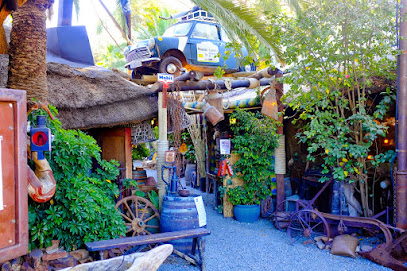
Hilton Windhoek
Discover the heart of Windhoek at Hilton Windhoek, where luxury meets local culture in a stunning setting.
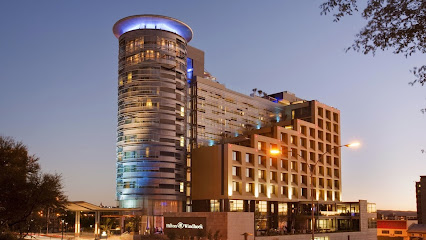
Arebbusch Travel Lodge
Discover the charm of Windhoek at Arebbusch Travel Lodge, where self-catering convenience meets local hospitality in the heart of Namibia.
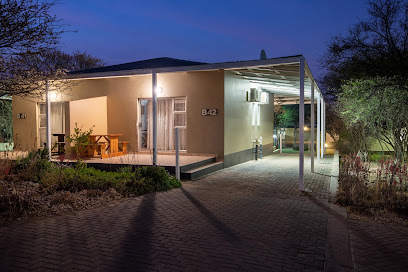
Avani Windhoek Hotel & Casino
Discover luxury and excitement at Avani Windhoek Hotel & Casino, the ultimate destination for travelers in Namibia's vibrant capital.
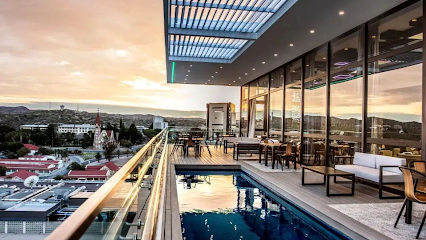
Cape Town Fish Market Windhoek
Savor the ocean's bounty at Cape Town Fish Market in Windhoek, where fresh seafood meets vibrant atmosphere and unforgettable flavors.
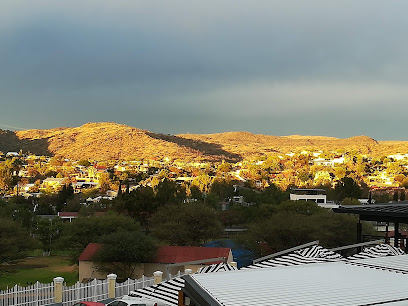
Zoo Park
Explore the serene beauty of Zoo Park in Windhoek, a must-visit green oasis with local wildlife and relaxing walking paths.
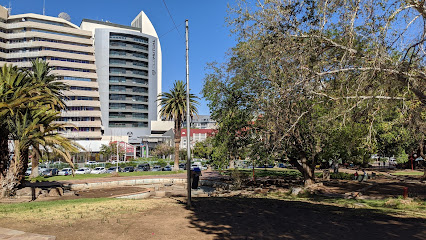
UrbanCamp
Discover UrbanCamp in Windhoek: A blend of comfort, adventure, and local culture awaits at this unique campground and café.
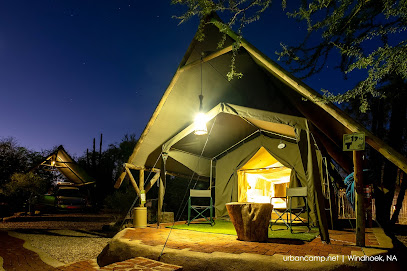
Butcher Block Namibia
Experience the finest steaks in Windhoek at Butcher Block Namibia, where quality meets flavor in a cozy atmosphere.
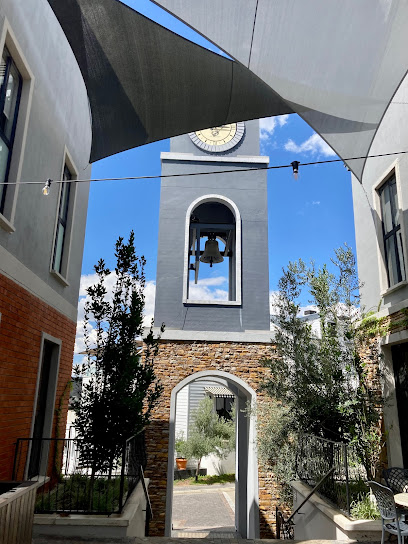
Oshetu Community Market
Discover the heart of Windhoek at Oshetu Community Market, a vibrant hub for local crafts, delicious cuisine, and cultural experiences.
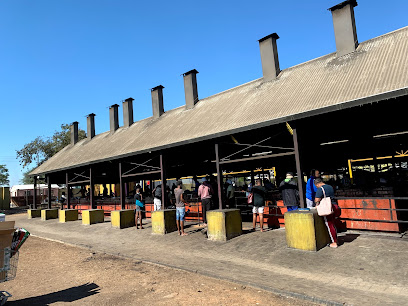
Namibia Craft Centre
Explore the rich cultural tapestry of Namibia at the Namibia Craft Centre, where authentic arts, crafts, and local flavors come together.
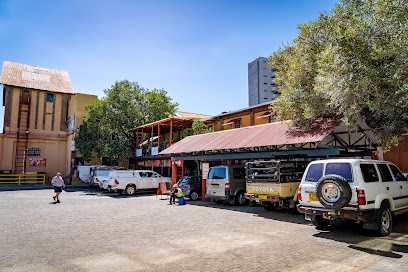
Droombos
Discover the serene beauty and diverse offerings of Droombos Lodge in Windhoek, a perfect retreat for relaxation, events, and outdoor adventures.
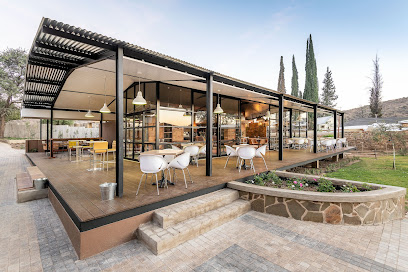
The Weinberg Hotel, Gondwana Collection Namibia
Discover the elegance of The Weinberg Hotel in Windhoek, where luxury meets the beauty of Namibia's capital city.
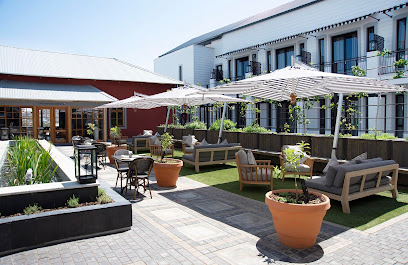
Okapuka Safari Lodge
Experience luxury and wildlife at Okapuka Safari Lodge, a tranquil retreat near Windhoek, Namibia, where nature meets comfort.

Christuskirche
Discover the architectural beauty and historical significance of Christuskirche, Windhoek's treasured Lutheran church and cultural landmark.
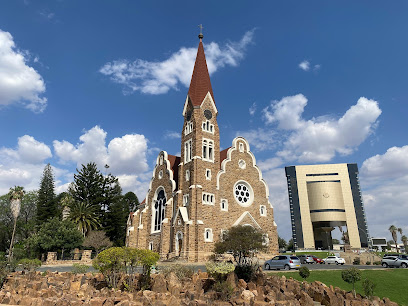
Craft Cafe
Discover the perfect blend of quality coffee and local crafts at Craft Cafe in Windhoek, where creativity and flavor unite.
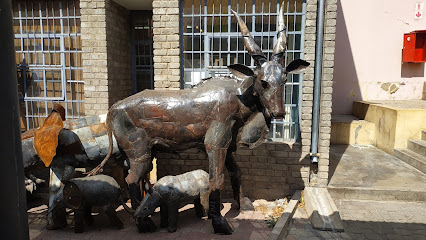
Unmissable attractions to see
Zoo Park
Explore Zoo Park in Windhoek - A tranquil urban escape with lush greenery and fascinating wildlife, perfect for families and nature enthusiasts.
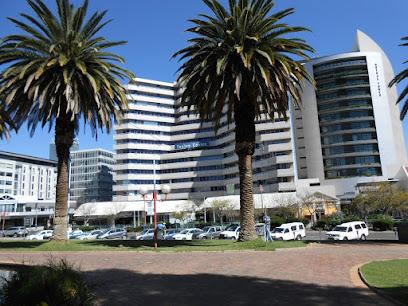
Namibia Craft Centre
Explore the Namibia Craft Centre in Windhoek for an authentic experience of local artistry and culture, featuring unique crafts and delicious cuisine.
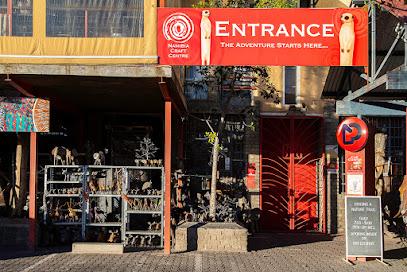
Namibia Craft Centre
Explore the vibrant Namibia Craft Centre in Windhoek for unique crafts, local art, and an authentic taste of Namibian culture.
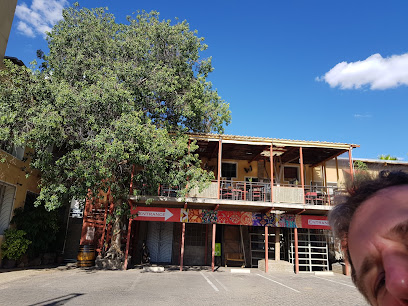
Okapuka Safari Lodge
Experience the perfect blend of luxury and nature at Okapuka Safari Lodge, where adventure and relaxation await in the heart of Namibia's wilderness.

Independence Museum
Explore Namibia's journey to freedom at the Independence Museum in Windhoek - a captivating testament to the nation's rich history and cultural resilience.
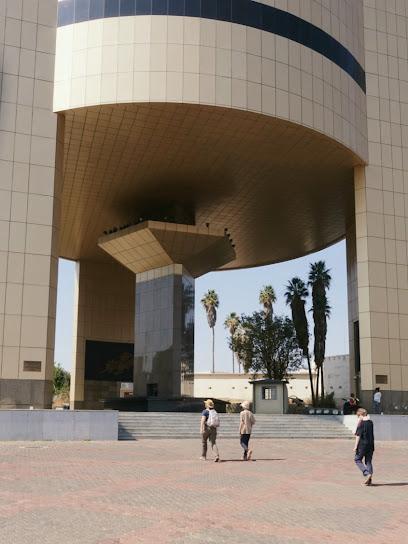
Christuskirche
Explore Christuskirche, a stunning Lutheran church in Windhoek, showcasing historic architecture and rich cultural heritage in the heart of Namibia.
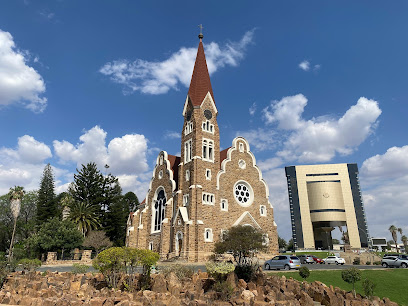
Daan Viljoen Game Reserve
Explore the breathtaking Daan Viljoen Game Reserve near Windhoek, where diverse wildlife and picturesque landscapes await every nature enthusiast.
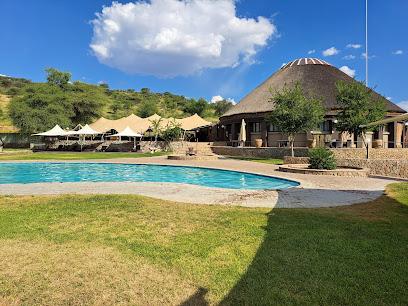
Craft Market (Independence Ave)
Explore the vibrant Craft Market on Independence Avenue, a hub of local art, culture, and unique handmade treasures in Windhoek.
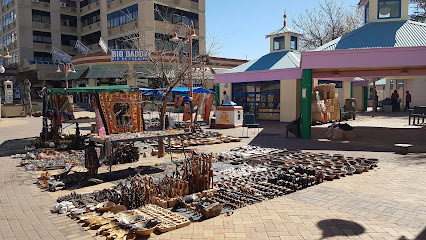
Botanical Garden Walking Path
Explore the stunning Botanical Garden Walking Path in Windhoek, a serene oasis showcasing Namibia's unique flora and breathtaking landscapes.
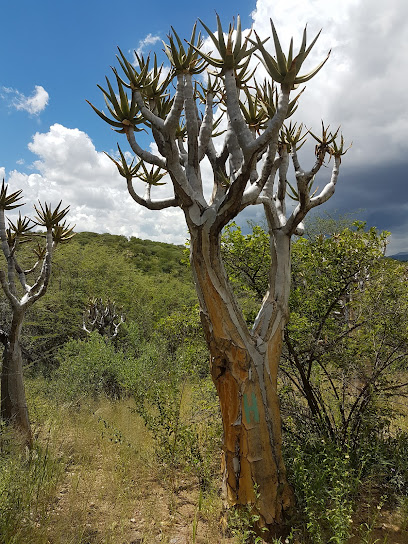
Liberty Brands of Unlimited Art
Explore the vibrant world of Namibian art at Liberty Brands of Unlimited Art, a must-see attraction in Windhoek showcasing local creativity.
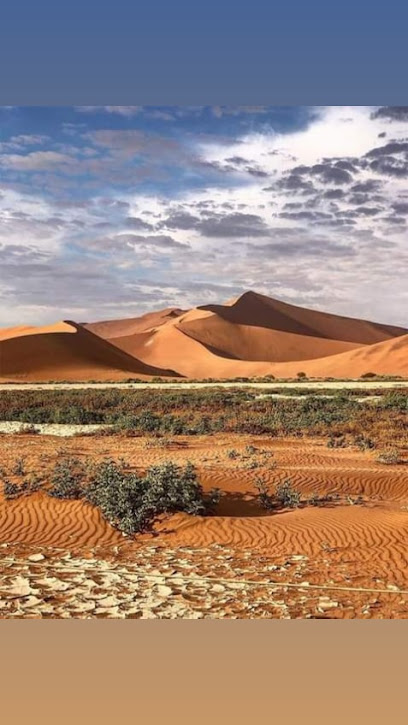
N/a'an ku sê Wildlife Sanctuary
Explore the N/a'an ku sê Wildlife Sanctuary and immerse yourself in Namibia's wildlife conservation efforts while enjoying unforgettable encounters.
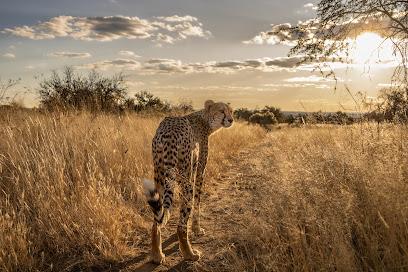
Kudu Statue
Discover the Kudu Statue in Windhoek, a stunning symbol of Namibia's wildlife and cultural heritage, perfect for your travel photos and exploration.
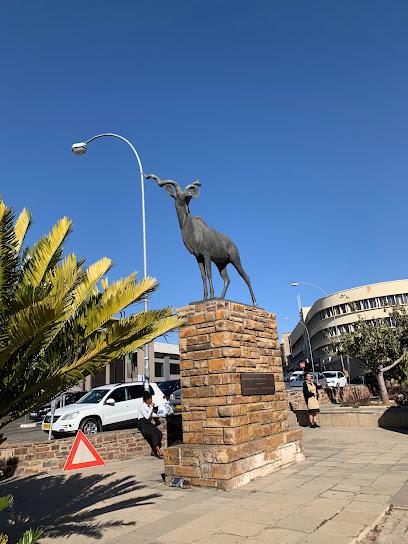
National Art Gallery of Namibia
Explore Namibia's vibrant culture through diverse exhibitions at the National Art Gallery of Namibia, showcasing local and international art.
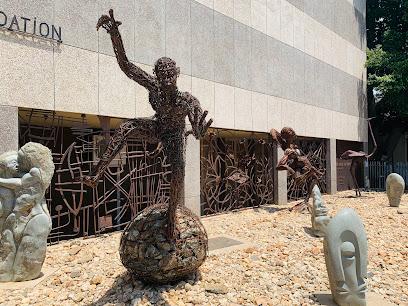
Daan Viljoen Lodge
Experience the beauty of Namibia at Daan Viljoen Lodge, your tranquil escape within the Daan Viljoen Game Reserve near Windhoek.

Palm Tree Park
Explore the lush greenery and serene beauty of Palm Tree Park, a tranquil oasis in the heart of Windhoek, Namibia.
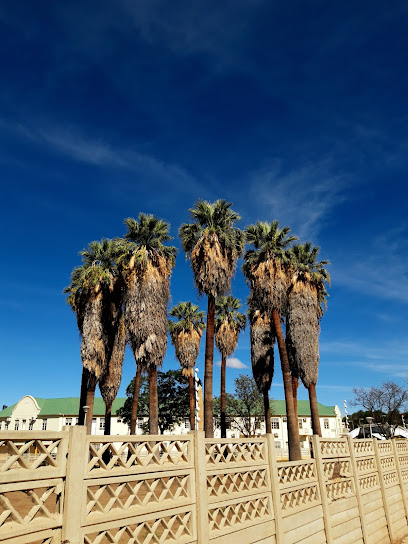
Essential places to dine
Joe's Beerhouse
Experience the heart of Namibia at Joe's Beerhouse - where delicious cuisine meets vibrant culture in Windhoek.
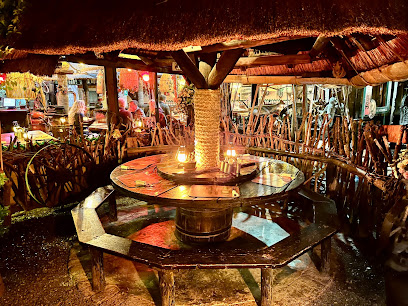
The Stellenbosch Wine Bar and Bistro
Experience Namibia's culinary delights at The Stellenbosch Wine Bar and Bistro - where fine dining meets local flavor in Windhoek.
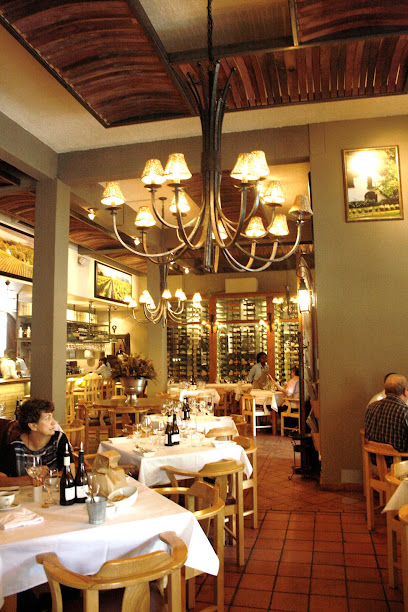
Cape Town Fish Market Windhoek
Experience fresh seafood delicacies at Cape Town Fish Market Windhoek - where coastal flavors meet Namibian hospitality.
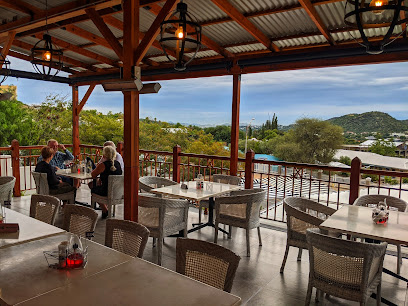
RocoMamas The Grove
Experience the best gourmet burgers and barbecue delights at RocoMamas The Grove in Windhoek - where flavor meets fun!
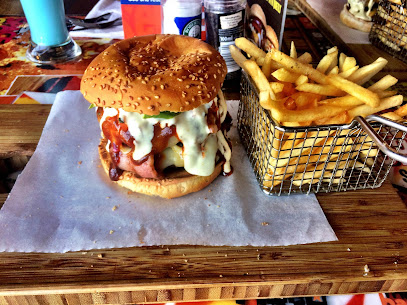
Nico’s Pub and Grill
Experience authentic Namibian flavors at Nico's Pub and Grill in Windhoek - where good food meets great company.
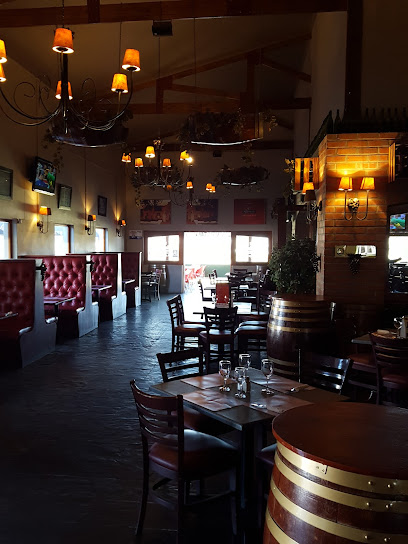
Pizzeria Sicilia Restaurant
Savor authentic Italian cuisine at Pizzeria Sicilia in Windhoek—where every meal feels like a journey to Italy.
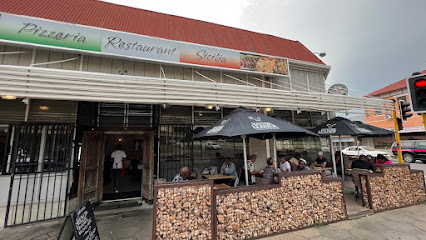
Butcher Block Namibia
Experience unparalleled flavors at Butcher Block Namibia - Windhoek's premier steakhouse serving succulent cuts in a welcoming atmosphere.
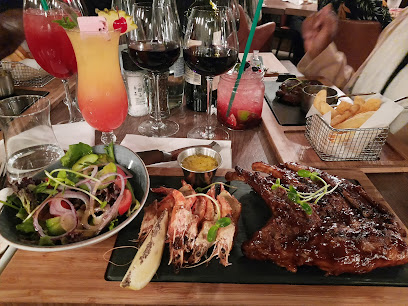
Roof of Africa Restaurant
Discover authentic Namibian cuisine at Roof of Africa Restaurant – a delightful brewpub experience in Windhoek's vibrant dining scene.
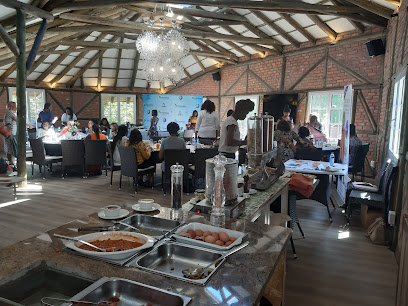
Kubata Restaurant
Discover authentic Namibian cuisine at Kubata Restaurant in Windhoek - where vibrant flavors meet warm hospitality.
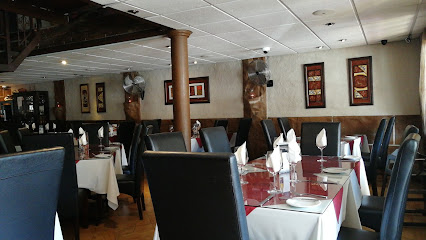
Fresh ’n Wild at Utopia
Experience the vibrant flavors of Namibia at Fresh 'n Wild at Utopia - A restaurant and coffee shop celebrating local ingredients in Windhoek.
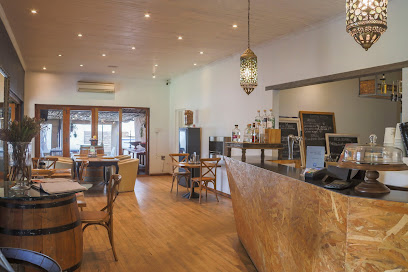
Col'Cacchio The Grove
Experience authentic Italian cuisine at Col'Cacchio The Grove - where delicious pizzas meet vibrant ambiance in Windhoek.
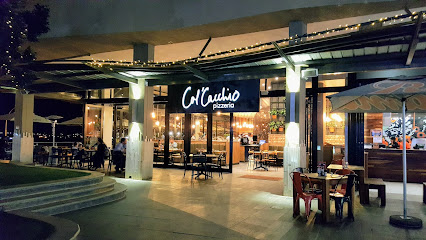
Sardinia Blue Olive Restaurant
Experience authentic Italian cuisine in Windhoek at Sardinia Blue Olive Restaurant – where every dish is crafted with passion and flavor.
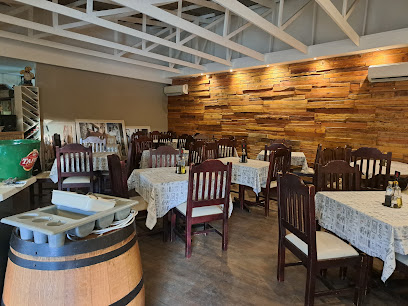
Schnitzel King
Discover authentic flavors at Schnitzel King in Windhoek—where every schnitzel tells a story!
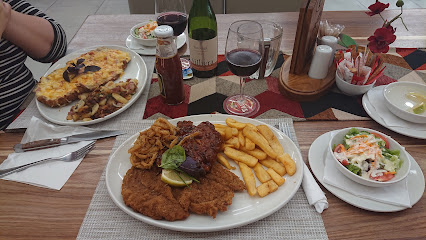
Krisjan's Bistro Windhoek
Experience the heart of Namibian cuisine at Krisjan's Bistro in Windhoek – where local flavors meet cozy ambiance.
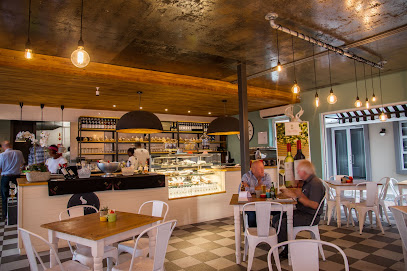
O Portuga Restaurant
Experience the essence of Portugal in Windhoek at O Portuga Restaurant - where authentic flavors meet warm hospitality.
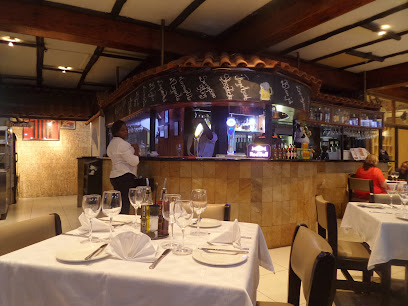
Markets, malls and hidden boutiques
Wernhil
Wernhil: Windhoek's premier shopping mall blending local culture with modern retail experiences for every traveler.
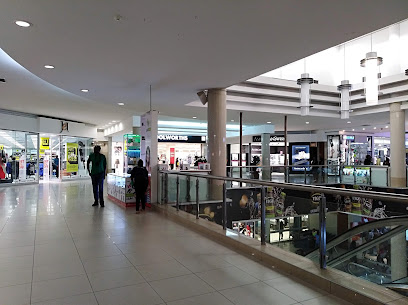
The Grove Mall of Namibia
Discover a shopping haven at The Grove Mall of Namibia, where local culture meets global brands in the heart of Windhoek.
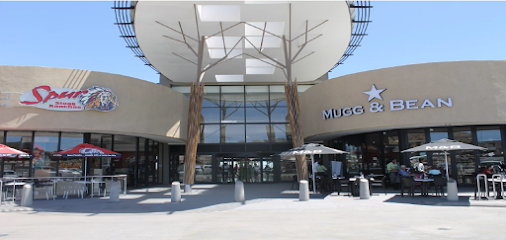
Maerua Mall
Experience the vibrant atmosphere of Maerua Mall in Windhoek, with shopping, dining, and entertainment for everyone.
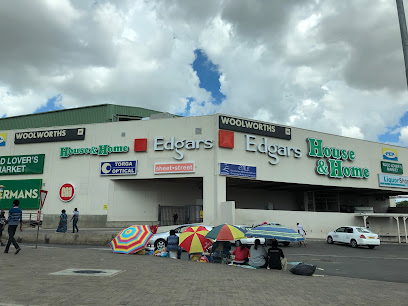
Game Windhoek
Discover a diverse range of products at Game Windhoek, your ultimate shopping destination in the heart of Namibia's capital.
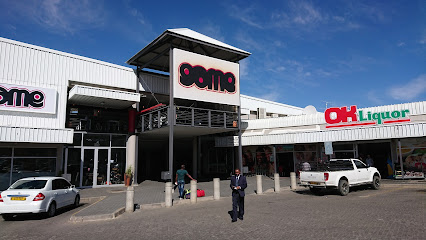
Town Square Mall
Discover Windhoek’s Town Square Mall, a vibrant shopping hub with local and international brands, delightful dining, and entertainment options.
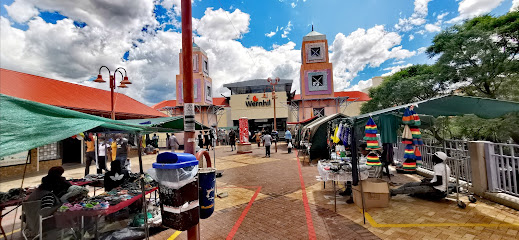
Namibia Craft Centre
Discover the essence of Namibia at the Craft Centre, a vibrant hub showcasing local art, crafts, and delicious cuisine in Windhoek.
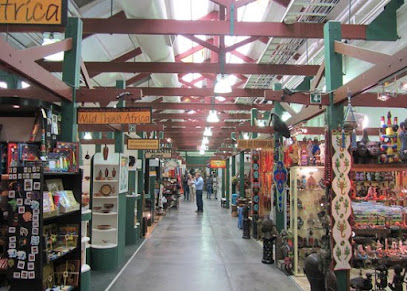
Dolls Paradise and Gift Shop
Discover a whimsical world of dolls and unique gifts at Dolls Paradise and Gift Shop in Windhoek, Namibia, perfect for all ages.
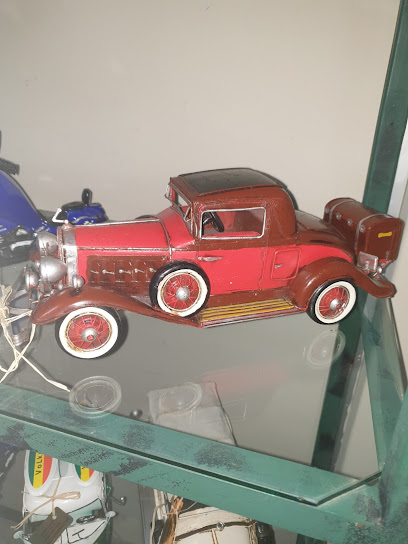
Woolworths Wernhil Park
Explore quality fashion and accessories at Woolworths Wernhil Park, a premier clothing store in the heart of Windhoek, Namibia.
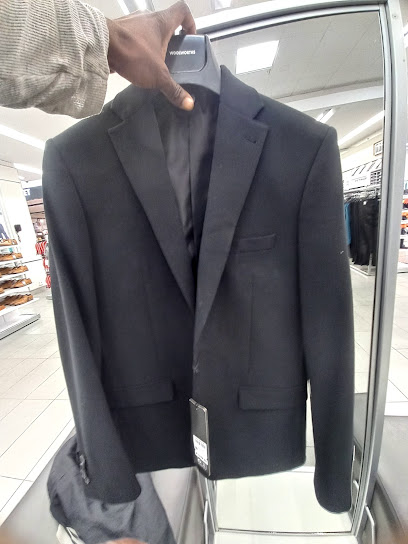
Edgars NAM Wernhil Plaza
Discover stylish clothing options at Edgars NAM Wernhil Plaza in Windhoek, the ultimate shopping destination for fashion enthusiasts.
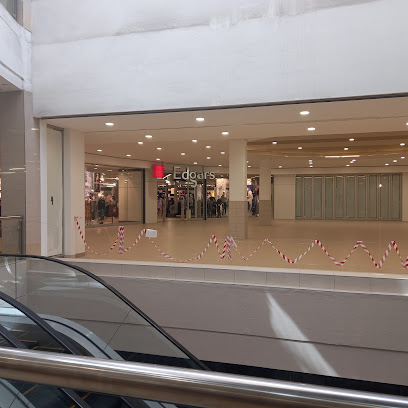
Carl List Mall
Discover shopping and local culture at Carl List Mall, a vibrant shopping destination in the heart of Windhoek, Namibia.
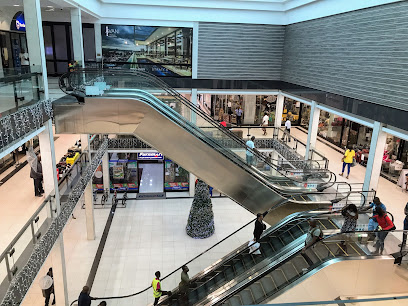
Safariland Holtz Namibia
Discover authentic Namibian clothing and unique souvenirs at Safariland Holtz Namibia, where culture and style meet in Windhoek.
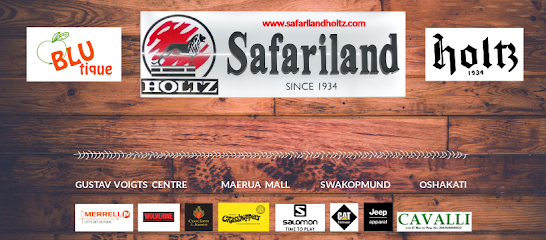
Muso's - Time Boutique & Music
Explore the melodies of Namibia at Muso's - Time Boutique & Music, Windhoek's premier destination for musical instruments and local rhythms.
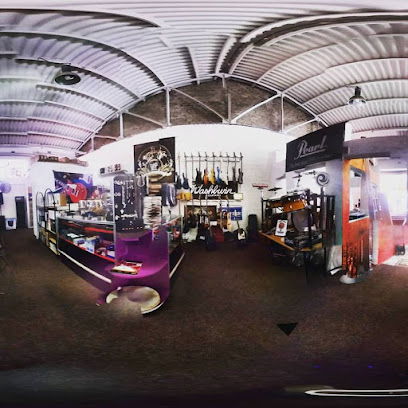
Streethouse
Explore Windhoek's fashion scene at Streethouse, where local artistry meets contemporary style in a unique shopping experience.

Bushman Art Gallery
Discover unique African arts and crafts at Bushman Art Gallery in Windhoek, where local culture and creativity come alive in every piece.
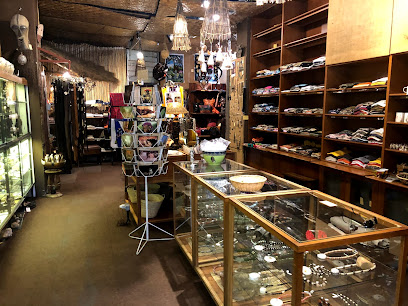
Funky Fair Shop
Discover vibrant fashion and unique local styles at Funky Fair Shop in Windhoek, a treasure trove for fashion lovers and tourists alike.
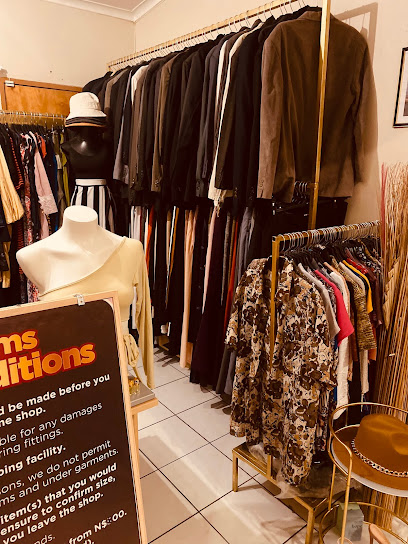
Essential bars & hidden hideouts
Joe's Beerhouse
Discover authentic Namibian cuisine and vibrant atmosphere at Joe's Beerhouse in Windhoek, a must-visit for every traveler.
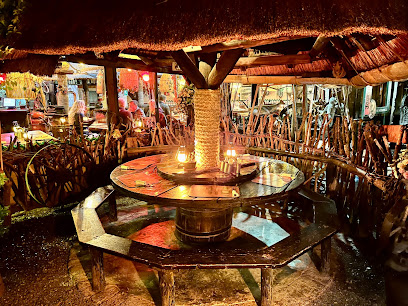
The Stellenbosch Wine Bar and Bistro
Experience the finest Namibian flavors and exceptional wines at The Stellenbosch Wine Bar and Bistro in Windhoek.
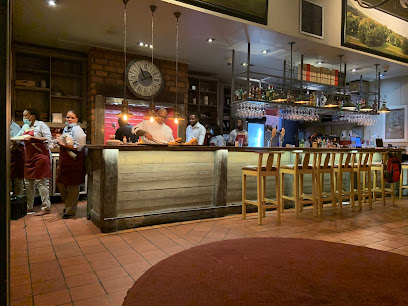
Andy's Pub & Restaurant
Andy's Pub & Restaurant in Windhoek: Taste local culture and enjoy vibrant nightlife with a diverse menu and friendly atmosphere.
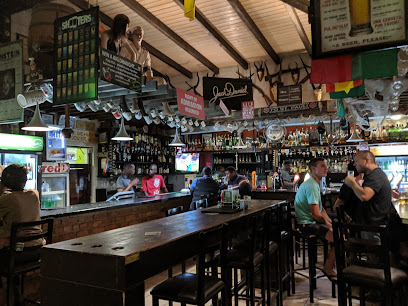
Roof of Africa Restaurant
Discover the taste of Namibia at the Roof of Africa Restaurant, where local flavors meet international cuisine in a vibrant atmosphere.
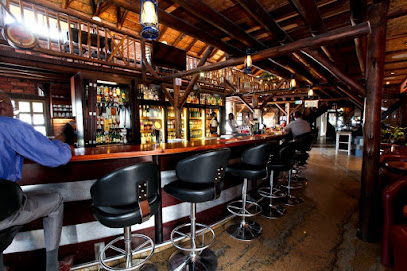
The Wine Bar
Discover the flavors of Namibia at The Wine Bar in Windhoek, where exquisite wines and delightful dishes await every visitor.
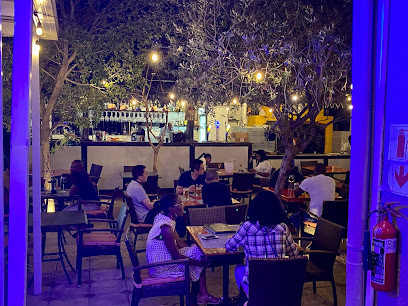
Chicago's Bar & Restaurant
Experience the vibrant flavors of Windhoek at Chicago's Bar & Restaurant, where delicious grilled dishes and a lively atmosphere await.
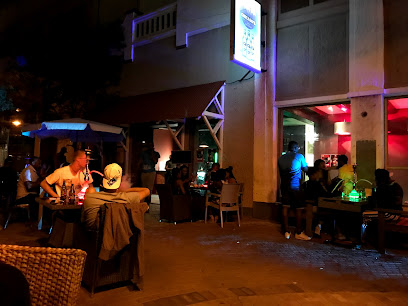
Vintage Bar & Grill
Experience the vibrant atmosphere and delightful flavors at Vintage Bar & Grill in Windhoek, where local and international cuisines meet.
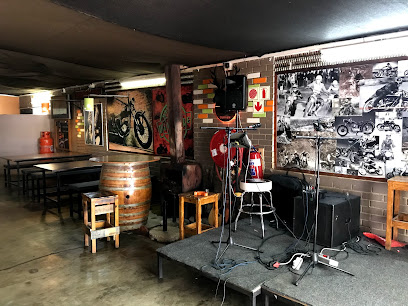
The Wolfshack
Experience the vibrant atmosphere of The Wolfshack, a must-visit bar in Windhoek, offering delicious food and a wide selection of drinks.
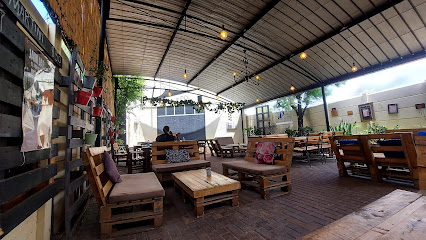
Eagles Beer Garden
Discover Eagles Beer Garden, Windhoek's vibrant bar blending local culture, refreshing drinks, and a lively atmosphere for an unforgettable experience.
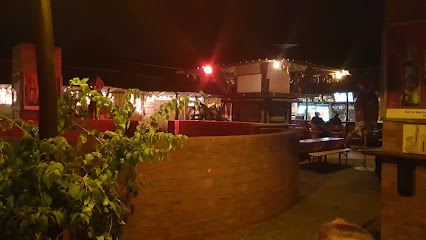
Die Bendehuis
Experience the heartbeat of Windhoek's nightlife at Die Bendehuis, where live music and karaoke create unforgettable memories.
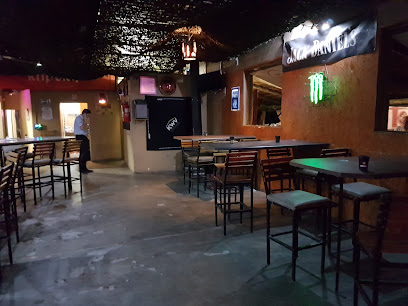
Bar
Discover the lively nightlife of Windhoek at this vibrant bar, offering a diverse drink selection and a welcoming atmosphere.
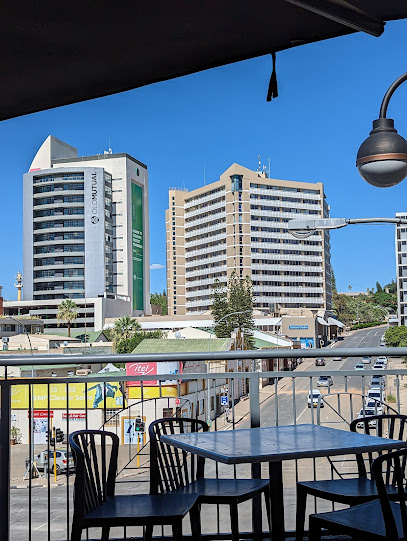
The Handle Bar
Experience the vibrant nightlife at The Handle Bar in Windhoek, where local culture meets a diverse selection of drinks.
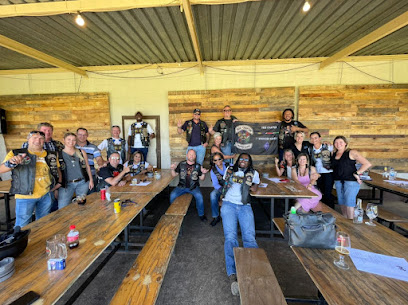
Sky lounge
Discover the vibrant atmosphere of Sky Lounge in Windhoek, where exquisite cocktails meet stunning city views for an unforgettable experience.
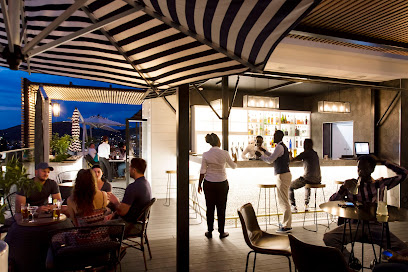
Funky Lab Windhoek
Discover the vibrant nightlife at Funky Lab Windhoek, where eclectic decor meets a lively atmosphere, perfect for relaxation and socializing.
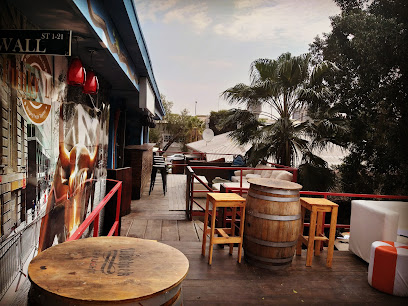
Local Phrases
-
- HelloHallo
[HAH-loh] - GoodbyeTotsiens
[TOHT-see-ens] - YesJa
[yah] - NoNee
[nee] - Please/You're welcomeAsseblief
[AH-suh-bleef] - Thank youDankie
[DAHN-kee] - Excuse me/SorryJammer
[YAH-mer] - How are you?Hoe gaan dit met jou?
[HOH-hahn deet met yoy] - Fine. And you?Goed. En jy?
[GOO-eht. Ehn yey] - Do you speak English?Praat jy Engels?
[praht yey EHNG-uhlss] - I don't understandEk verstaan nie
[ehk fehr-STAHN nee]
- HelloHallo
-
- I'd like to see the menu, pleaseEk wil asseblief die spyskaart sien
[ehk vil AH-suh-bleef dee speys-kaht seen] - I don't eat meatEk eet nie vleis nie
[ehk eet nee flehs nee] - Cheers!Gesondheid!
[guh-SUHNT-hayt] - I would like to pay, pleaseEk wil asseblief betaal
[ehk vil AH-suh-bleef buh-TAHL]
- I'd like to see the menu, pleaseEk wil asseblief die spyskaart sien
-
- Help!Hulp!
[huhlp] - Go away!Gaan weg!
[gahn vekh] - Call the Police!Bel die Polisie!
[behl dee poh-lee-see] - Call a doctor!Roep 'n dokter!
[roop uhn dohk-tehr] - I'm lostEk is verlore
[ehk iss fehr-LOH-ruh] - I'm illEk is siek
[ehk iss seek]
- Help!Hulp!
-
- I'd like to buy...Ek wil koop...
[ehk vil kohp] - I'm just lookingEk kyk net
[ehk kayk neht] - How much is it?Hoeveel kos dit?
[HOH-veel kohss deet] - That's too expensiveDit is te duur
[deet iss teh doo-er] - Can you lower the price?Kan jy die prys laat sak?
[kahn yey dee preys laht sahk]
- I'd like to buy...Ek wil koop...
-
- What time is it?Hoe laat is dit?
[HOH laht iss deet] - It's one o'clockDit is een uur
[deet iss een uhr] - Half past (10)Half tien
[hahlf teen] - MorningOggend
[OH-khent] - AfternoonMiddag
[mihd-dahkh] - EveningAand
[ahnt] - YesterdayGister
[GIHS-tehr] - TodayVandag
[fahn-dahkh] - TomorrowMôre
[moh-ruh] - 1Een
[een] - 2Twee
[twee] - 3Drie
[dree] - 4Vier
[feer] - 5Vyf
[fayf] - 6Ses
[sehs] - 7Sewe
[seh-weh] - 8Agt
[ahgt] - 9Nege
[neh-guh] - 10Tien
[teen]
- What time is it?Hoe laat is dit?
-
- Where's a/the...?Waar is die...?
[vahr iss dee] - What's the address?Wat is die adres?
[vaht iss dee ah-drehs] - Can you show me (on the map)?Kan jy my wys (op die kaart)?
[kahn yey may vees op dee kahrt] - When's the next (bus)?Wanneer is die volgende (bus)?
[vaan-nehr iss dee fohl-gehn-duh] - A ticket (to ....) 'n Kaartjie (na ....)
[uhn kahrt-chee nah]
- Where's a/the...?Waar is die...?
History of Windhoek
-
Windhoek's history begins with the indigenous Nama, Herero, and Damara people who inhabited the area for centuries. The name 'Windhoek' is believed to have been derived from the Afrikaans word 'Wind-Hoek' (wind corner), possibly referring to the windy conditions of the region or from a Nama word ‘ǃAisǃGams’ meaning 'firewater', referring to the hot springs that were found there.
-
In the early 19th century, Jonker Afrikaner, a leader of the Oorlam people, established a settlement at Windhoek. He constructed a stone church and built a small community, marking the first significant settlement by non-indigenous people. This laid the foundation for Windhoek as a central location in Namibia.
-
In 1884, Windhoek became part of German South West Africa. The Germans established Windhoek as their colonial capital in 1890, constructing fortresses, churches, and other European-style buildings. Notable structures from this period include the Christuskirche and the Alte Feste, which served as a military headquarters.
-
Between 1904 and 1907, the Herero and Nama people rebelled against German colonial rule, leading to a brutal conflict. German forces committed atrocities against the Herero and Nama, leading to significant loss of life and displacement. This dark chapter remains a significant part of Windhoek's history and is commemorated at various sites in the city.
-
Following Germany's defeat in World War I, South Africa took control of Namibia, including Windhoek, under a League of Nations mandate. This period saw the expansion of the city's infrastructure and further segregation policies, which led to the establishment of separate residential areas for different racial groups.
-
The mid-20th century witnessed growing resistance against South African rule. Windhoek became a central hub for nationalist movements, including SWAPO (South West Africa People's Organization), which led the fight for independence. The city's residents played a crucial role in the liberation struggle, with many significant protests and events occurring within its bounds.
-
Namibia gained independence on March 21, 1990, and Windhoek became the capital of the new nation. Since then, the city has experienced rapid development and modernization. The government has focused on addressing historical inequalities and promoting cultural heritage, making Windhoek a vibrant and diverse city.
-
Windhoek is home to numerous cultural landmarks and institutions that reflect its rich history. Notable sites include the Independence Memorial Museum, which offers insights into Namibia's struggle for freedom, and the National Museum of Namibia, housed in the historic Alte Feste. The city also boasts a lively arts scene, with galleries, theaters, and events celebrating indigenous and contemporary Namibian culture.
Windhoek Essentials
-
Windhoek, the capital of Namibia, is accessible via Hosea Kutako International Airport (WDH), located approximately 45 kilometers east of the city. Major airlines operate flights from various international destinations. From the airport, you can take a taxi or a shuttle service to the city center. Alternatively, you can reach Windhoek by road from neighboring countries such as South Africa, Botswana, and Zambia.
-
Windhoek has a range of transportation options. Local taxis are abundant and can be hailed on the street or booked via phone. Ride-hailing services like LEFA are also available. Public buses and minibuses (commonly called combis) operate on fixed routes within the city. For more flexibility, consider renting a car, which will allow you to explore Windhoek and its surroundings at your own pace. Be mindful that driving is on the left side of the road.
-
The official currency is the Namibian Dollar (NAD), which is pegged to the South African Rand (ZAR). Both currencies are used interchangeably. Credit cards are widely accepted in hotels, restaurants, and larger shops, but it is advisable to carry some cash for smaller establishments and markets. ATMs are readily available throughout Windhoek.
-
While Windhoek is generally safe, petty crime like pickpocketing can occur, particularly in busy areas such as Independence Avenue. Avoid walking alone at night and be cautious in the Katutura and Khomasdal neighborhoods, which have higher crime rates. Always keep your valuables secure and stay aware of your surroundings.
-
In case of an emergency, dial 112 for police, fire, and medical assistance. Windhoek has several hospitals and clinics, including the Windhoek Central Hospital and the Lady Pohamba Private Hospital. It is advisable to have travel insurance that covers medical emergencies. Pharmacies are available for over-the-counter medications.
-
Fashion: Do dress modestly, especially when visiting religious or cultural sites. Avoid overly revealing clothing. Religion: Do respect local customs and traditions. Namibia is religiously diverse, with Christianity being predominant, so showing respect in places of worship is important. Public Transport: Do be polite and patient when using public transportation. Avoid discussing sensitive topics like politics. Greetings: Do greet people with a handshake and maintain eye contact. A friendly 'hello' or 'good day' is appreciated. Eating & Drinking: Do try local dishes and accept food offerings graciously. Don't refuse hospitality, as it is considered impolite.
-
To experience Windhoek like a local, visit the Old Breweries Craft Market for unique Namibian crafts and souvenirs. Explore the vibrant Katutura township to understand the city's history and culture better. Enjoy a sundowner at Joe's Beerhouse, a popular spot among locals. For an authentic experience, try local dishes such as kapana (street food barbecue) and biltong (dried cured meat).
Trending Landmark in Windhoek
-
Joe's Beerhouse
-
Hilton Windhoek
-
Arebbusch Travel Lodge
-
Avani Windhoek Hotel & Casino
-
Cape Town Fish Market Windhoek
-
Zoo Park
-
UrbanCamp
-
Butcher Block Namibia
-
Oshetu Community Market
-
Namibia Craft Centre
-
Droombos
-
The Weinberg Hotel, Gondwana Collection Namibia
-
Okapuka Safari Lodge
-
Christuskirche
-
Craft Cafe
Nearby Cities to Windhoek
-
Things To Do in Okahandja
-
Things To Do in Karibib
-
Things To Do in Usakos
-
Things To Do in Omaruru
-
Things To Do in Otjiwarongo
-
Things To Do in Mariental
-
Things To Do in Swakopmund
-
Things To Do in Walvis Bay
-
Things To Do in Outjo
-
Things To Do in Tsumeb
-
Things To Do in Etosha Village
-
Things To Do in Keetmanshoop
-
Things To Do in Lüderitz
-
Things To Do in Oshakati
-
Things To Do in Ongwediva













